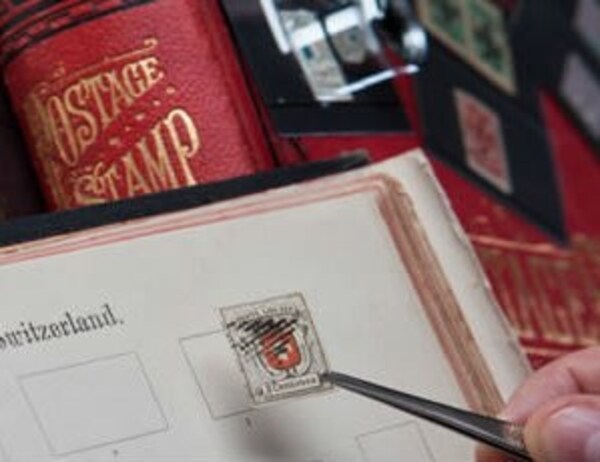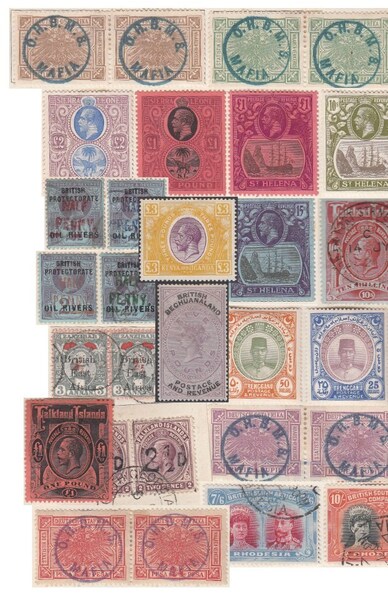I was chatting with a client the other day, and the subject of “Postal History” came up. I told him that Robson Lowe, that great old dealer, auctioneer and philatelic author had originally coined the phrase “Postal History” and had been somewhat miffed when others had used it.
“Well” he said “I don’t know who this chap Robson Lowe was but if I find an interesting cover I just put it in a box with all the others and send it to you!" In fact he continued to tell me that during a lifetime of collecting he had never read any specialized tome relating to stamps or postal history.
The thought that he had missed out on a great deal was confirmed to me a few days later.
I had visited my parents, my father’s 80th Birthday is around the corner and it’s spurred him to clean out the garage and attic. “Here, these are yours” and a carrier bag stuffed with paper was handed over. I dutifully took it away with me (“You will thank me in the end – less for you to sort out when we’re gone!”) and discovered it was packed with my old ephemera, including what was my 21st birthday gift. An order form I had made out for 20 different philatelic reference books, from Mr Attwoods book on Ascension Island to a Coles & Walker book on the cancellations of the Ottoman Empire. I still have every one of them, they are old friends and I will never part with them.
Years can pass without me referring to some of these works, I really cannot remember the last time I studied Craig & Ingles catalogue of “The Revenue and Railway stamps of Tasmania”, or the 1983 Schimmer revision of Schatzkes “Mexico 1856 – 1874” (published by Mr Lowe...) but I would die rather than give up these repositories of pain- staking research and love.
My boss at the time had told me “take home any of our books, expect to remember just ten percent of what you read but try to understand the interest the author had and get the basic philatelic history of each area into your mind...”
I love books on philately and it’s one of the reasons we’ve published so many articles, if you haven’t read any you can find them on our site. They are not long, but even the shortest can take a long time for us to write. I think you may be surprised how reading something unrelated to your specific interests can contribute to a better understanding of your own area.
I’ve added a lot to the library at the office over the years. It’s huge now and constantly surprises me with little nuggets of knowledge. For example, I’ve just pulled an old book off the shelf and discovered that the first Russian stamp is imperforate because of the late arrival of the perforating machine at St Petersburg - so what I’ve always considered to be Russias 2nd (perforated) issue was intended to be their first! I had rather lazily assumed that that Russias first imperf classic was similar to other early classics in that perforating had not been an option. I get a kick out of finding out new things like that, and I hope you do too.


 General
General
 General
General
 General
General